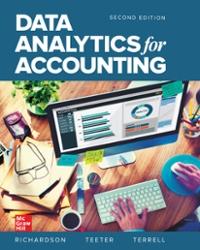Question
1. Explain your contribution thought on the discussion below. Justify if it is true or not. Monetarists believe that monetary policy set forth by the
1. Explain your contribution thought on the discussion below. Justify if it is true or not.
Monetarists believe that monetary policy set forth by the central bank should be the main effort in managing the economy while the government and its fiscal policy should play less of a role and not interfere. Monetarists believe this because in their view the money supply controls the economy. By controlling the money supply, they believe that this will directly influence inflation and can influence future interest rates. They also believe that the government should run a balanced budget, inadequate money supply is the reason for economic depressions, government spending causes inflation and crowding out, and that regulations/regulators hamper free market forces from maintaining flexible wages. On the other hand, Keynesian economists believe that the government's fiscal policy is responsible for keeping a stable and growing economy and should intervene when necessary. It is the burden of the government to influence the economy by manipulating the demand for goods and services. Keynesian economists also believe that the government shouldn't focus on running a balanced budget, wages are inherently sticky, and that the emphasis should be put on reducing unemployment rather than reducing inflation. They do have some similarities such as both believe that the money supply does play a role in the economy. However, Keynesian economists argue that monetary policy takes too long to affect the market.
The Classical economists would have agreed with the Fed's decision to provide more liquidity to the market as well as growing the monetary base and of its balance sheet. They would also have endorsed the Fed's decision of lending to a plethora of borrowers on a wide variety of assets. Where the Classicals would be in an uproar of condemnation for the Fed would be the bailing out of too big to fail companies that were insolvent or near insolvent. They would have also disagreed with the Fed on is the purchase of highly questionable assets and its acceptance of hard to value collateral. Yet another two factors they would have condemned the Fed for would be the extension of its loan deadlines and the implementation of paying interest on excess reserves. While the Monetarists can trace their roots to the Classicals and would have agreed with them on most of the Fed's responses. One response they differ on though is that Monetarists believed that increasing liquidity sooner would have potentially saved AIG and a few other companies while it is said that the Classicals would have opposed this due the companies' insolvency.
ahan,S., Mahmud,A.S., & Papageorgiou,C. (2014, September). What is keynesian economics? International Monetary Fund. https://www.imf.org/external/pubs/ft/fandd/2014/09/basics.htm
Jahan,S., & Papageorgiou,C. (2014, March). What is monetarism? International Monetary Fund. https://www.imf.org/external/pubs/ft/fandd/2014/03/basics.htm
Humphrey,T.M. (2022, April 6). Averting financial crises: Advice from classical economists. Federal Reserve Bank of Richmond. https://www.richmondfed.org/publications/research/econ_focus/2014/q4/federa
2. Explain your contribution thought on the discussion below. Justify if it is true or not.
Should the government use monetary and fiscal policy to stabilize the economy, or should it adhere to policy rules and refrain from upsetting the economy?
After investigating the different economic policies like the Keynesian and monetarism policies I firmly believe that the government should step in when the economy is in bad health to help regulate the economy and guide it toward recovery. These policies have worked in the past and therefor should be implemented in the future as well. Monetarism gained prominence in the 1970sbringing down inflation in the United States and United Kingdomand greatly influenced the U.S. central bank's decision to stimulate the economy during the global recession of 2007-2009.
After reading the articleAverting Financial Crises: Advice from Classical Economists byThomas M. Humphrey. It Is my opinion that the Classicals would wholeheartedly disagree with how the U.S. intervened with the economy in 2008 with bailouts and other economic policies aimed to rectify the mistakes made by bad investors and banks in order to stimulate the economy. The Classicals believed that government intervention is a short term fix and opened up the possibility for even greater consequences in the long term. These writings established rules for what is today called the "lender of last resort." Why the need for special rules? Emergency lending comes with a longer-term risk: that when investors expect to be protected from losses, they'll overfund risky activity, leading potentially to greater and deeper crises" recently is the general concusses that the decisions the government made in 2007-2009 were the right decisions because it worked and the economy recovered from recession. It remains to be seen what the long term effects are, but I remain hopeful for the future health of the economy.
Step by Step Solution
There are 3 Steps involved in it
Step: 1

Get Instant Access to Expert-Tailored Solutions
See step-by-step solutions with expert insights and AI powered tools for academic success
Step: 2

Step: 3

Ace Your Homework with AI
Get the answers you need in no time with our AI-driven, step-by-step assistance
Get Started


